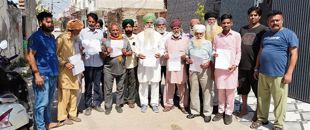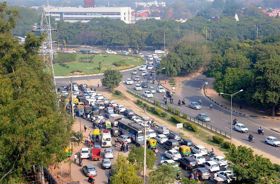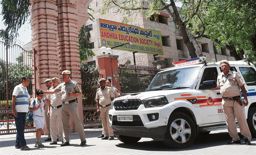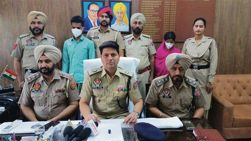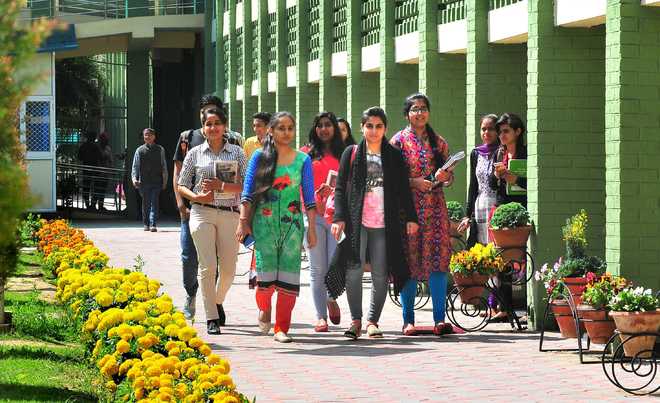
Santosh Kudtarkar
The democratisation of education coupled with the exigencies of economic survival has necessitated training in specific practical skills to secure one’s future. But the price one pays for this uni-disciplinary approach is a total absence of understanding of the multiple perspectives that inform a subject. Non practical skill-based courses, too, suffer from the same malaise. This leads to ill-equipped students who are unable to deal with the pace of obsolescence and update their repository of skills to meet the demands of the new.
Liberal education seeks to address these inadequacies and more. Like Plato’s idea of tiered education, it goes beyond the current and seeks to develop habits of life-long learning that enables students to pick up skills that address the demands of the future.
Liberal education hones the ability to think critically and effectively. It enables intellectual growth by application of these skills to examine, analyse and synthesise information obtained from multiple sources and demands that every issue or problem be informed by inter-disciplinary perspectives.
It provides exposure to all aspects of human knowledge and affords an opportunity to make an in-depth study of a subject.
Students opting for liberal arts course have the opportunity to engage in academic programmes across cognate areas, which is not always possible in the traditional higher education system.
A liberal arts course
Liberal arts is a term used for an interdisciplinary approach to education. It provides students the choices to take courses which are varied. Students can experience a broad spectrum of courses and they have the freedom of meandering into many streams of knowledge to discover where their calling is and which stream they respond to. Their curriculum is not open ended. There is a structure and the student experiences some courses across the streams of existing knowledge to be able to make well informed choices in their specialisations.
Students opting for these courses can chose from over 250 major-minor combinations across business, communication management, social sciences, humanities, mathematics and natural sciences and the fine and performing arts.
Some interesting combinations include a major in finance and a minor in theatre, or a major in applied mathematics with a minor in advertising and branding or vice-versa. A major in psychology and a minor in music, or a major in environmental studies and a minor in public policy. Students can choose to pursue public policy with economics as well.
Students can also choose to complete an independent research project which presents them with an opportunity to either focus on that specific discipline or to identify areas of intersection between their major and minor and raise related questions, or a course in economics may look at the impact of profit motives on the environment and the ethical questions that such a pursuit raises.
The structure of the liberal education programme involves breadth and depth of study. Breadth of study allows students to explore different disciplines before making a decision about their specialisation.
The breadth of study that students are exposed to encompasses the essentials of liberal education. It includes foundation courses whose aim is to equip students with the basic tools of logical and critical reasoning, strengthen their written and oral communication skills, expose the students to develop an understanding of human society and culture and the forces that influence their evolution and development, provide an overview of the theories, principles and facts of our understanding of the material world around us, teach the students to speak in multiple tongues for effective communication in an increasingly globalized world and develop their aesthetic sensibilities in the fine and performing arts. This is achieved by placing it in a multi-disciplinary framework.
To sum up, with its focus on the cultivation of habits of learning, critical thinking, communication and good citizenship, liberal education seeks to hedge the danger of the irrelevancy of conventional education to address the problems of the future and provides a framework for success in career and happiness in life.
Where to study
The philosophy of liberal education is at the core of higher education in the United States. In a recent Forbes guest column, Steve Sadove, former Chairman and CEO of Saks Incorporated, writes, "A 2014 study by the Association of American Colleges and Universities and the National Center for Higher Education Management Systems found that liberal arts majors earn more than most professional majors at their peak earnings ages. It also has been reported that a third of Fortune 500 CEOs have liberal arts degrees."
In India, there are very few liberal education universities. The truly liberal education focused universities concentrate on developing abilities to communicate clearly and effectively through writing and speaking which is essential for success. Their programmes go beyond intellectual achievement and seek to inculcate the values of good citizenship and to realise the potential of the individual. They aim to nurture sensitive, informed, ethical, and responsible global citizens whose knowledge to bring about positive change in society.
Some of the states where liberal arts education is present in India are Maharashtra, Haryana, Karnataka, Uttar Pradesh and Gujarat.
Universities like FLAME University, Jindal School of Liberal Arts and Humanities, Pandit Deendayal Petroleum University, Ashoka University, Symbiosis School of Liberal Arts and Shiv Nadar University offer liberal arts courses in India.
Options after a degree
As liberal arts education allows students to gather and learn diverse skills through various major and minor combinations, the career prospects are also varied. Some of the careers students can think of after graduating are:
- International Relations Official
- Public Policy
- Economist
- Sociologist/Psychologist
- Human Resource Specialist
- Law
- Financial and Risk Analysts
- Entrepreneurship
- Media Professional
- Research
- Writer/Journalism
- Social Worker
— The writer is Associate Dean, Faculty of Liberal Education, FLAME University





















